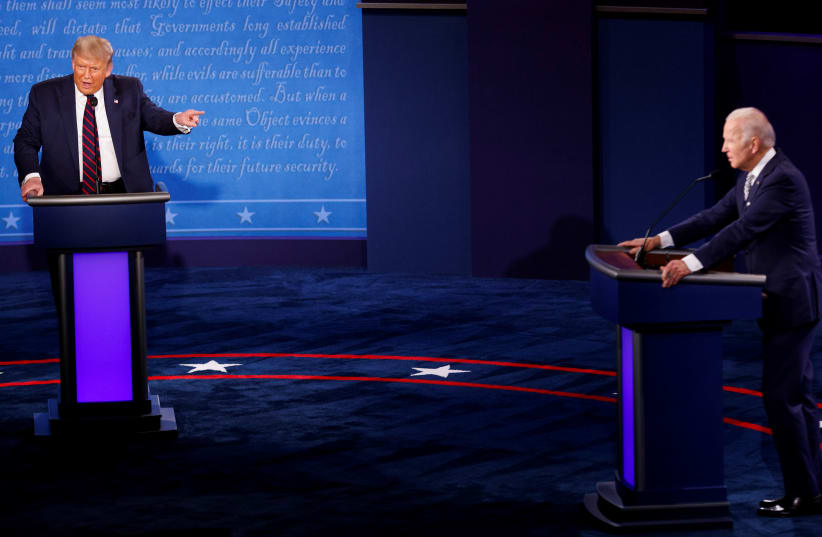WASHINGTON – It was a chaotic, hard-to-watch event that looked like no other presidential debate in US history. And although both candidates spoke jointly for 85 minutes, there was little substance to take away from Tuesday night.From that perspective, it is hard to see what impact, if any, an hour and a half of crosstalk and insults will have on the upcoming elections.As preliminary TV ratings indicated on Wednesday, viewers also preferred to stay away from that circus. According to Nielsen TV ratings, Tuesday's debate had lower ratings compared to the 2016 Trump-Clinton debate.Trump’s strategy was to interrupt Biden constantly, including personal insults on his son Hunter, to take his challenger out of balance.The former VP, who is known for being a “gaffe machine,” took the bait a couple of times with comments such as “shut up, man” and “clown,” but did not provide a memorable gaffe or mistake that could cause him significant electoral damage.On the other hand, Biden missed a few opportunities to go after Trump’s handling of COVID-19, as well as his taxes and the economy, as the first 30 minutes of the debate were his weakest. Trump, on his part, failed to condemn the far-right “Proud Boys” with his “stand down and stand by” comment.At this point, it seems like supporters of both Trump and Biden have an in-depth knowledge of the candidates, their advantages and weaknesses, and therefore, the attempt to find out “who won” also seems somewhat archaic.Unlike the Nixon-Kennedy debate in 1960, or even the Bush-Perot-Clinton debate in 1992, in which the sitting President kept looking at his wristwatch, recent debates have not, in fact, indicated who is going to win the elections.Thus, while CNN and CBS instant polls indicated that Biden “won” the debate, it is worth noting that Clinton also got better marks for her debate performance in 2016, and Romney got better marks than Obama on the first 2012 debate. In both cases, the person who won the debate lost the electoral college.For the most part, Wednesday night was a mud fight that represents the current trend in American politics: a zero-sum game, with little to no common ground being reached.
Trump-Biden debate reveals little about what's next
From that perspective, it is hard to see what impact, if any, an hour and a half of crosstalk and insults will have on the upcoming elections.
